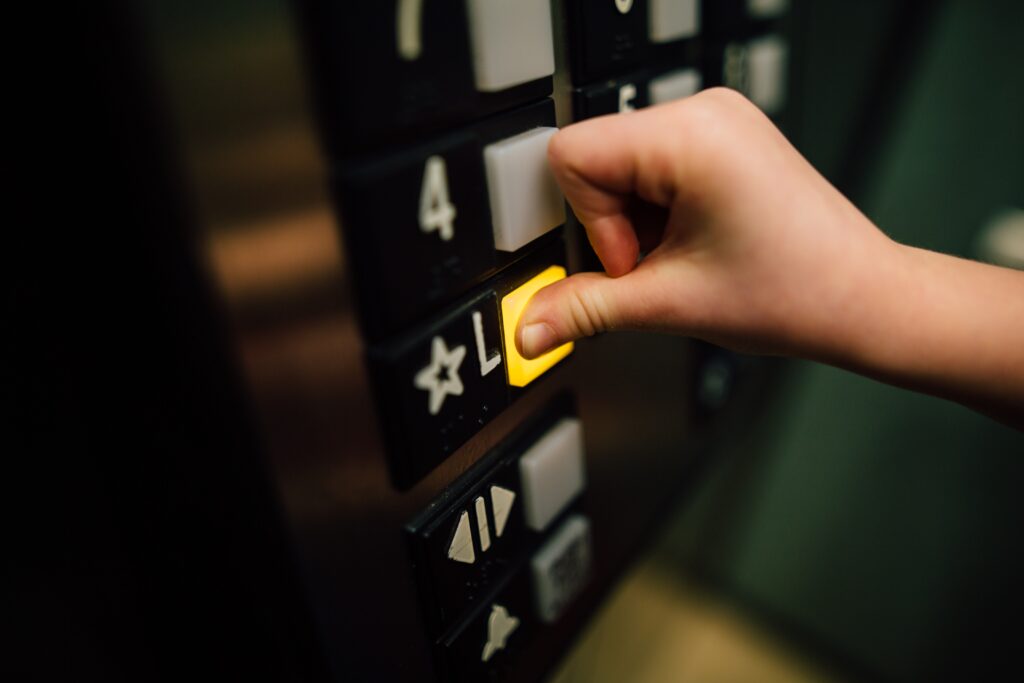
Most people who live or work in cities take elevators for granted because they use them so frequently. Elevators are always there to provide quick and easy access to upper or lower floors in a mid-rise or high-rise building. Elevators are mechanical devices, and they can break down or fail, causing serious injuries to unsuspecting riders. South Carolina elevator safety laws were enacted to help keep residents and visitors safe.
What Are South Carolina’s Elevator Safety Laws?
The South Carolina Elevator Code can be found in the South Carolina Code of Laws at Title 41, Chapter 16. The Office of Elevators and Amusement Rides administers the Elevator Code and regulations. Nationally certified inspectors, licensed by the Department of Labor, Licensing and Regulation (LLR), handle all annual elevator inspections. It is the responsibility of elevator owners to schedule these inspections. Under state law, all elevator owners must:
- Register their facilities with LLR
- Have new or altered facilities inspected and tested before an operating permit is issued
- Have registered facilities inspected within one year of the effective date of registration
- Have all elevators inspected annually or more frequently
- Obtain permits for new installations
- Obtain operating certificates from LLR indicating compliance with the Elevator Code
- Grant access to inspectors at any reasonable time, with or without notice
- Maintain elevators in a safe operating condition, in conformance with LLR regulations
What Are the Maintenance Requirements for Elevators in South Carolina?
To obtain operating certificates for elevators, property owners in South Carolina must pass an inspection performed by a licensed and certified inspector at least once a year. Elevator inspectors work from a lengthy checklist to ensure that all parts of the elevator are functioning properly, including the inside of the car, the machine room, the top of the car, the outside hoistway, the pit, and the firefighters’ service.
To prepare for inspections, elevator owners must perform any maintenance and repairs necessary to meet state standards. For example, elevator maintenance may include:
- Ensuring the doors open and close freely
- Ensuring the emergency stop button is fully functional
- Confirming that the emergency phone connects quickly with 911 or the fire department
- Replacing any burned out lights inside or outside the car
- Testing the smoke detector and fire alarm system
- Checking oil levels in machinery
- Examining electrical wiring for fraying or defects
- Testing the brakes and inspecting the mechanism
- Ensuring the emergency exit hatch on top of the car is easily accessible
- Checking cables for signs of wear
- Ensuring the pit areas has proper access
- Checking the car frame for any signs of damage
- Inspecting the pit to ensure it has the necessary clearance
What Are the Consequences of Failing to Comply With Elevator Maintenance Requirements?
Owners who fail to comply with the South Carolina Elevator Code may face criminal penalties. The law states that any person who violates any provisions of the code is guilty of a misdemeanor (unless otherwise specifically stated in the code), punishable by imprisonment for up to 90 days, a fine of up to $500, or both. In addition to criminal penalties, building owners who violate provisions of the Elevator Code may be assessed civil penalties, in different amounts for different violations.
Failure to comply with state regulations regarding elevator inspections, maintenance, and repairs can lead to serious injury or death for riders. If you have been injured in an accident caused by elevator owner negligence, you may have a claim for compensation to cover your medical expenses, lost wages, pain and suffering, and other losses.
Contact a Charleston elevator accident lawyer at Allen Law at (843) 882-5005. We have the knowledge, skills, and resources to effectively pursue the compensation you deserve.

